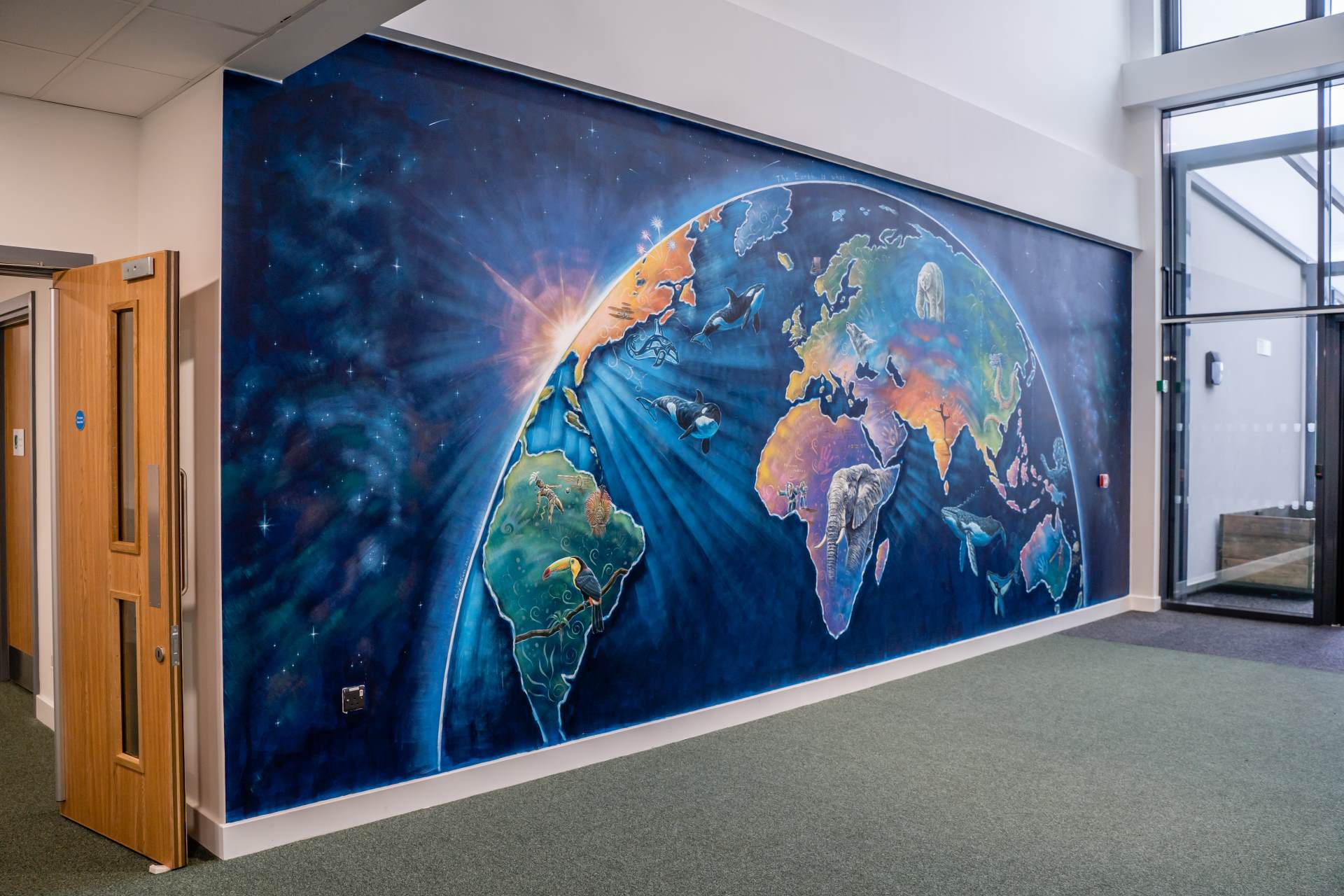Geography
Intent
Our geography curriculum enables our pupils to acquire an understanding of geographers' view of the world and foster a fascination of the world, its people, and their roles within it.
The topic and content choices are based on the context of our school and enable the pupils to understand their local area, the world around them, and how it is interconnected. Pupils gain specific knowledge that they can then learn to apply as generalisations to other issues and places in the world.

Implementation
We ensure that all pupils understand new material when it is taught by carefully sequencing and designing our curriculum, we also offer pupils retrieval opportunities as starters for each lesson if needed. We teach substantive knowledge through the 4 interconnected forms: locational knowledge, place knowledge, human and physical processes, and geographical skills. Using disciplinary knowledge pupils learn how geographers think and work, and they themselves learn to question the world around them.
In addition, pupils are taught that geography has concepts that connect the subjects: space, place, scale, interdependence, environmental impact, sustainable development, and cultural diversity and awareness. The knowledge that is gained is connected across the whole school curriculum through horizontal, vertical, and diagonal links.
Geographical skills and meaningful fieldwork, build on the substantive knowledge the pupils have learnt in previous years. In addition, fieldwork ensures that pupils are immersed in geographical skills to enable them to retain this knowledge and become fluent in areas such as interpreting maps.
Impact
We evaluate the impact of our teaching through in-class assessments and pupil voice. Teachers then evaluate if areas need to be re-visited based on these assessments or whether some pupils need consolidation or support. Pupil voice at the end of each unit shows that pupils have acquired the requisite substantive knowledge and can answer disciplinary knowledge questions using their substantive knowledge to support their explanations.
Throughout the year, through effective monitoring by subject leaders, areas of development are identified and addressed. End of unit assessments ensure that pupils have an opportunity to demonstrate what they have learnt. This summative assessment feeds into future unit planning. At the end of the year the curriculum is reviewed by the subject senior leaders to establish if they need to be altered or remain the same.










